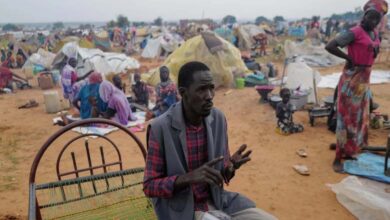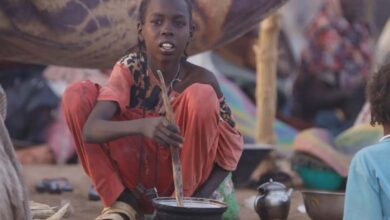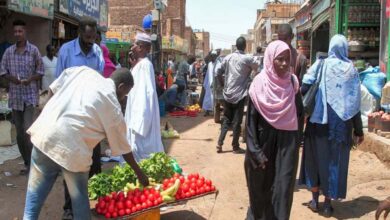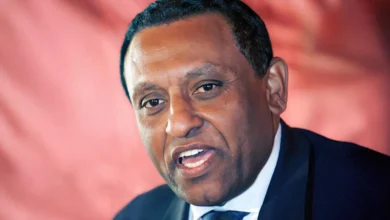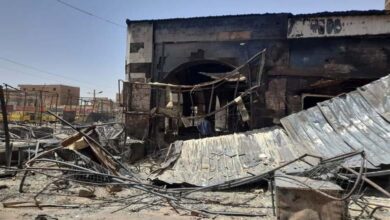Health and Politics in Sudan: The Collapse of the Social Contract in an Era of Disease
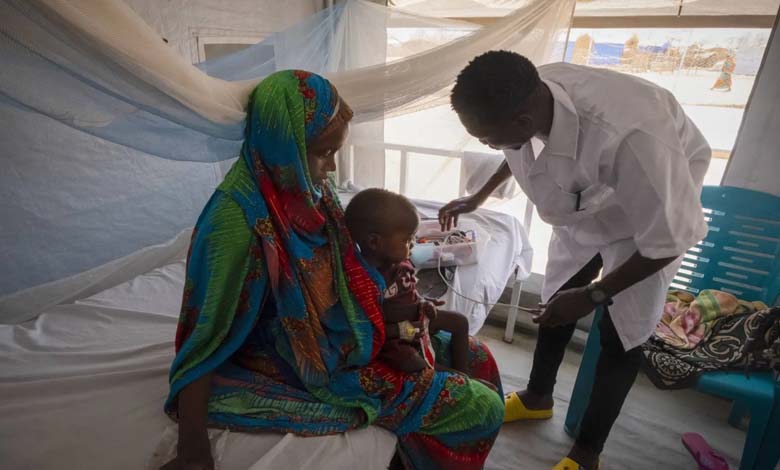
Sudan no longer needs economic indicators or medical reports to prove to the world that it is experiencing a total collapse. Daily observations of life in Khartoum, Al-Jazira, and the Northern region are enough to witness a state incapable of performing even the simplest functions. The crumbling healthcare sector reflects broader political and social failures, where war and disease intertwine, exposing the ruling elites’ inability to manage the crisis and revealing a state eroding from within.
-
Rapid Support Forces Deny Allegations of Bombing Nyala Airport, Accuse Port Sudan of Media Disinformation Campaign
-
Rapid Support Forces Gain Near Full Control of El Fasher Organize Safe Corridors for Civilian Displacement
Politically, the current health crisis highlights the limits of military power. While the army and Rapid Support Forces compete for territorial control, what remains of state institutions silently collapses. A modern state is measured by its capacity to protect its citizens and ensure their health and food security—not by the number of tanks it possesses or the capitals it visits. The contradiction is stark: immense military strength versus complete inability to provide a simple anesthetic or saline solution for a dying child in a Khartoum hospital.
The health crisis also exposes the imbalance between the ruler and the ruled. Sudanese citizens feel abandoned, their lives not prioritized by those in power. This sentiment is reflected in testimonies of families who have lost children due to delayed ambulances, or those forced to sell belongings to buy medicines on the black market. Over time, these daily struggles cultivate a political awareness and anger that may form the foundation of future popular movements.
-
Rapid Support Forces Warn of Islamist Threat to Sudan’s Unity
-
Targeted Strikes in Port Sudan Reveal Tactical Shift by Rapid Support Forces
The social dimension is equally critical. Diseases such as malaria and dengue do more than kill—they weaken social cohesion. When families are forced to bury the deceased quickly for fear of infection, and villages lose medical staff due to displacement, the social safety nets that Sudanese communities have long relied upon disintegrate. This fragility opens the door to non-state actors—militias or extremist groups—positioning themselves as substitutes for the state.
The collapsed economy adds another layer of complexity. Citizens unable to secure daily sustenance cannot afford medical care even if medicine is available. Poverty and disease thus form a vicious cycle leading to a slow death. From an analytical perspective, Sudan’s health collapse is yet another manifestation of the breakdown of the social contract linking the state to its citizens. When the life of a citizen loses its value, the essence of the state itself crumbles.
-
A Parallel Government in Sudan… The Rapid Support Forces and Their Allies Sign the Founding Charter
-
AFP: Sudan’s Rapid Support Forces and Allies Sign Charter to Form a Rival Government
Ironically, the health crisis can become a political tool for the warring factions. The army may use images of destroyed hospitals to garner international sympathy, while the Rapid Support Forces may present themselves as capable of protecting civilians by opening health centers in controlled areas. Yet, these tactics do not change the fundamental reality: both parties are responsible for the current state, with primary responsibility resting on elites who favored war over dialogue and power over public interest.
Internationally, the world’s response to the Sudanese crisis is remarkably indifferent. While frequent statements are issued by the UN and humanitarian organizations, the scale of actual intervention remains limited. This delay reflects that Sudan is not a priority on the international agenda, and the deaths of thousands due to epidemics only draw attention when they threaten to cross borders. This raises questions about the fairness of the international system and its capacity to protect lives in forgotten conflict zones.
-
Rapid Support Forces Expose the Muslim Brotherhood and Army Schemes in the Gezira State
-
“Rapid Support Forces” Welcome Washington’s Call for Sudanese Talks in Switzerland and Confirm Their Participation
Nevertheless, the current crisis may plant the seeds for significant political change. Sudanese history is rich with revolutions born from socio-economic suffering, from the October 1964 uprising to the December 2018 revolution. Today, disease could be the spark uniting popular anger against military elites. Hunger can sometimes be endured, but witnessing children die due to the lack of a simple medicine may be the straw that breaks the camel’s back.
The danger lies in this anger following disorganized paths if no civil leadership can channel it. The absence of a structured political alternative makes any spontaneous protest vulnerable to exploitation by armed or external forces. Sudanese civil actors thus bear a clear responsibility: either provide a coherent vision for the post-conflict future or leave the field open to other forces that will reproduce the crisis in even more tragic ways.
-
The Popular Movement Insists on Including Rapid Support Forces in Negotiations with the Government
-
UN Concerns Grow Over Escalating Fighting in El Fasher Between Army and Rapid Support Forces
In conclusion, what is happening in Sudan today is not just a health collapse but a sign of the total disintegration of the state. The solution will not be merely medical but primarily political. No medicine can cure a disease fueled by war, corruption, and lack of vision. The solution begins with ending the war and neutralizing the health sector, followed by rebuilding a social contract that places the life of the citizen at the forefront of priorities. Without this, Sudan will remain hostage to a slow death, manifested daily in the cries of the sick and the pain of families, while leaders tally their gains in an absurd and endless war.
-
The crisis worsens in Sudan… 8 Months of fighting between the Army and Rapid Support Forces, What’s next?
-
Rapid Support Forces enter wad madani in a victory tightening the noose on evidence







